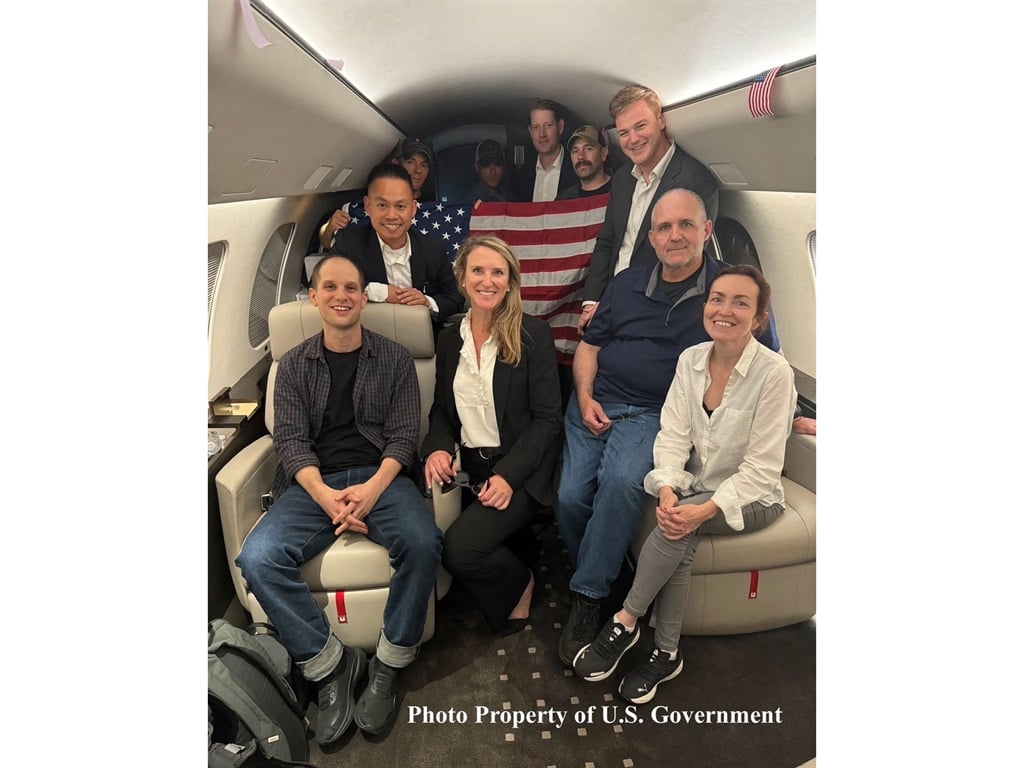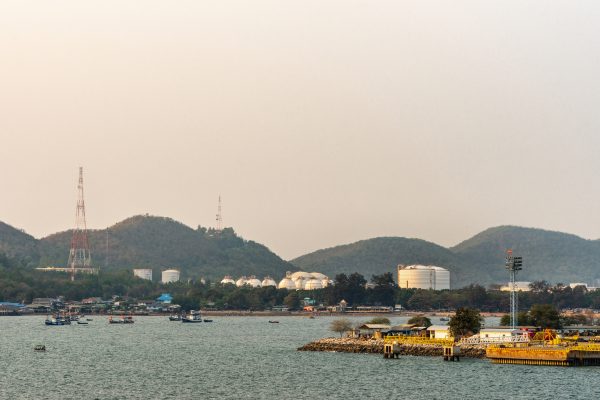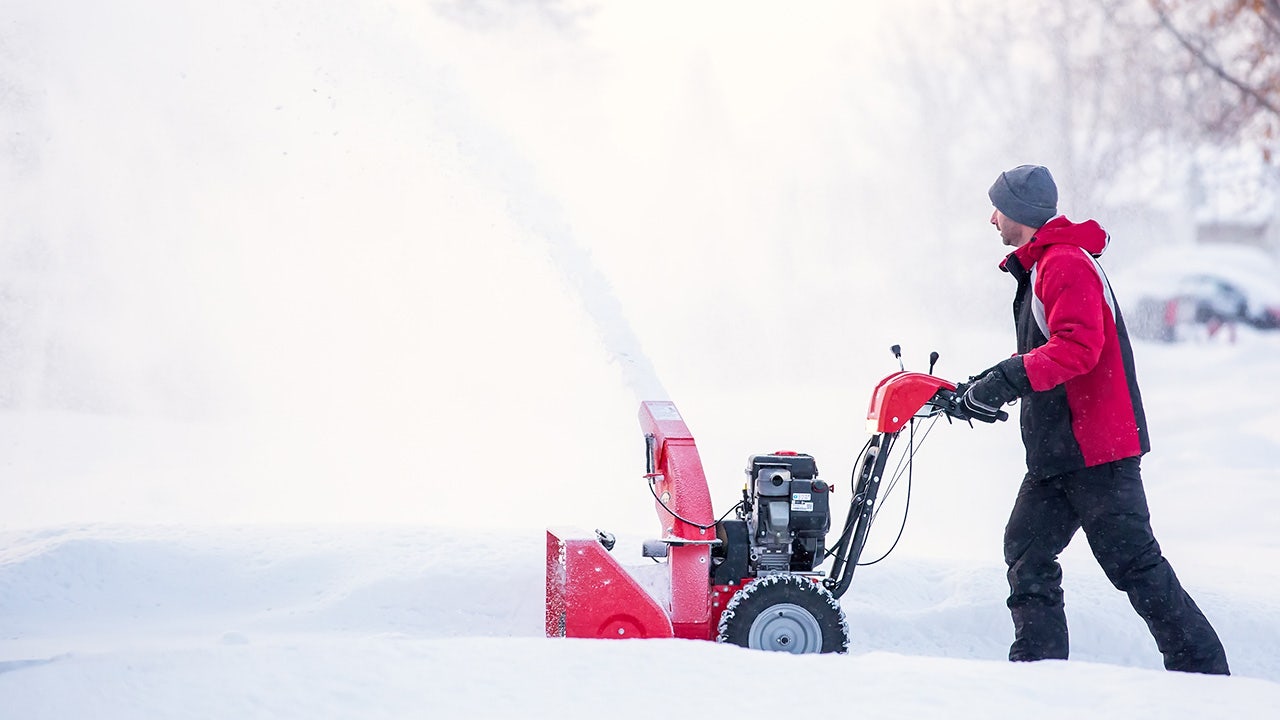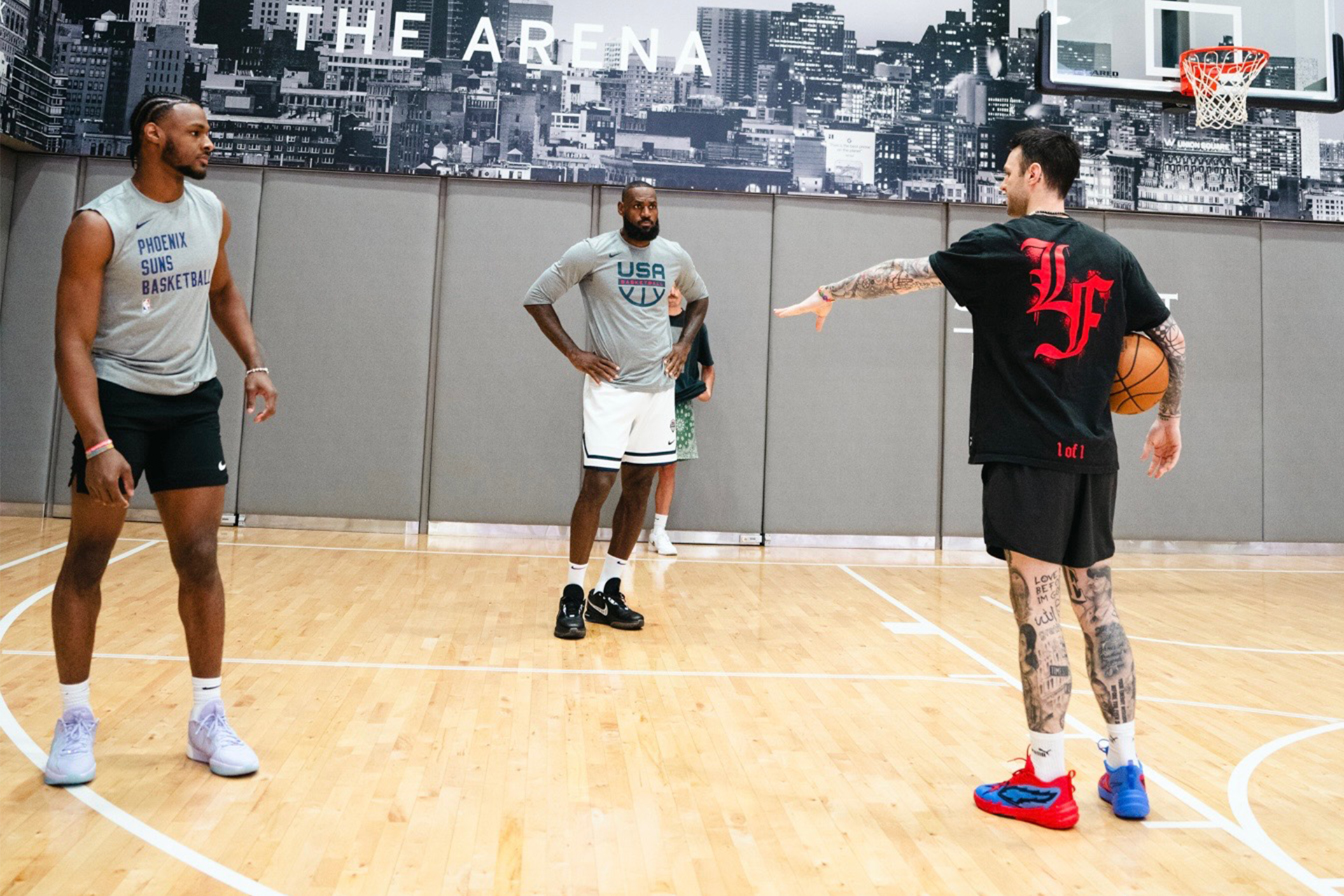An image released by the US government showing US journalist Evan Gershkovich (L), former US Marine Paul Whelan (2nd right) and US-Russian journalist Alsu Kurmasheva (R) on a plane after their release from Russia on 1 August 2024. (US government / AFP)
- Russia and Western powers led by the USA have completed their largest prisoner exchange since the Cold War.
- Evan Gershkovich, the Wall Street Journal reporter jailed in Russia for espionage, was among those released.
- Turkey served as the place of exchange for prisoners that came from Belarus, Germany, Poland, Slovenia, and Norway too.
Jailed US journalist Evan Gershkovich and a Russian intelligence colonel jailed for a Berlin murder were among two dozen prisoners freed Thursday in the biggest East-West prisoner swap since the Cold War.
The prisoners were flown to Turkey’s capital Ankara from Russia, the United States, Germany, Poland, Slovenia, Norway and Belarus under the complex deal, the Turkish presidency said.
In total, 10 Russians — including two minors — were exchanged for 16 Westerners and Russians imprisoned in Russia, said a statement released by the Turkish presidency.
Overjoyed family members appeared in the White House alongside US President Joe Biden, who said they’d been able to phone their freed loved ones from the Oval Office.
Hailing a “feat of diplomacy,” Biden said US allies Germany, Poland, Slovenia, Norway and Turkey “stood with us.”
“They made bold and brave decisions” to release Russians held for espionage and other crimes in return for the Westerners and Russian dissidents and human rights activists, he said.
“Some of these women and men have been unjustly held for years. All have endured unimaginable suffering and uncertainty. Today, their agony is over,” Biden said. He described their convictions in Russia as “show trials.”
Biden and US Vice President Kamala Harris were to greet the freed prisoners at Joint Base Andrews outside Washington.
Dmitry Medvedev, a former Russian president and close ally of current leader Vladimir Putin, celebrated the return of Russians who he said had “worked for the Fatherland.”
The Wall Street Journal said it was “overwhelmed with relief” at the release of Gershkovich, 32, who was detained in Russia in March 2023 and sentenced in July to 16 years in prison on spying charges that were denounced by the United States.
Paul Whelan, a former US marine detained since 2018, also flew to Ankara. Another American, Alsu Kurmasheva, and Vladimir Kara-Murza, a Russian with US residency, were likewise freed.
Opposition politician Ilya Yashin and Vladimir Kara-Murza, a Russian-Briton with US residency, who had both been jailed for criticising Russia’s invasion of Ukraine, were among the Kremlin opponents released.
Yashin will go to Germany with 11 other German nationals and Russians, according to the US administration. They included Rico Krieger, a German who was sentenced to death in Belarus on espionage charges before a reprieve this week.
Among those returned to Moscow was Vadim Krasikov, a Russian intelligence agent imprisoned in Germany for killing a former Chechen rebel commander in a brazen assassination.
The German government acknowledged that agreeing to free Krasikov had not been an “easy decision.”
“Our duty of care to German citizens as well as solidarity with the USA were important factors” in the decision to send Krasikov home, said government spokesman Steffen Hebestreit.
This was the first exchange between Russia and the West since star US basketball player Brittney Griner returned home in return for convicted Russian arms dealer Viktor Bout in December 2022.
It was the biggest since 2010, when 14 alleged spies were exchanged. They included double agent Sergei Skripal, who was sent by Moscow to Britain and undercover Russian agent Anna Chapman, sent by Washington to Russia.
Before then, major swaps involving more than a dozen people had only taken place during the Cold War, with Soviet and Western powers carrying out exchanges in 1985 and 1986.
White House National Security Advisor Jake Sullivan revealed that an even more ambitious agreement had been on the cards with attempts to negotiate the release of Putin opponent Alexei Navalny.
“Unfortunately, he died” while incarcerated in February of this year, Sullivan noted.
Despite the rare moment of cooperation between Western capitals and Putin’s Russia, Biden said “I don’t need to speak” with the Kremlin leader.
Gershkovich was arrested in Yekaterinburg while on a reporting trip. He, his employer and the US government all strongly denied the espionage allegations against him.
Media rights group Reporters Without Borders said it was “hugely relieved” at the release. But it slammed Moscow’s “policy of state hostage-taking.”
Amnesty International said in a statement the swap was a sign that Putin “is clearly instrumentalizing the law in order to use political prisoners as pawns.”
Washington had also been pressing for the release of Whelan, 54, who was arrested in 2018 in Moscow and charged with espionage.
Whelan was working in security for a US vehicle parts company when he was arrested, and has always asserted that the evidence against him was falsified.
Kara-Murza, a 42-year-old activist, was serving a 25-year sentence in Siberia for treason and other charges after criticising the Ukraine war. He suffers from a nerve disease and was moved to a prison hospital this month.
Adding to the intrigue was a case in Slovenia, where a court sentenced two Russians suspected of spying for Moscow to more than a year and a half in prison — but then ordered their expulsion from the country.





















Discussion about this post